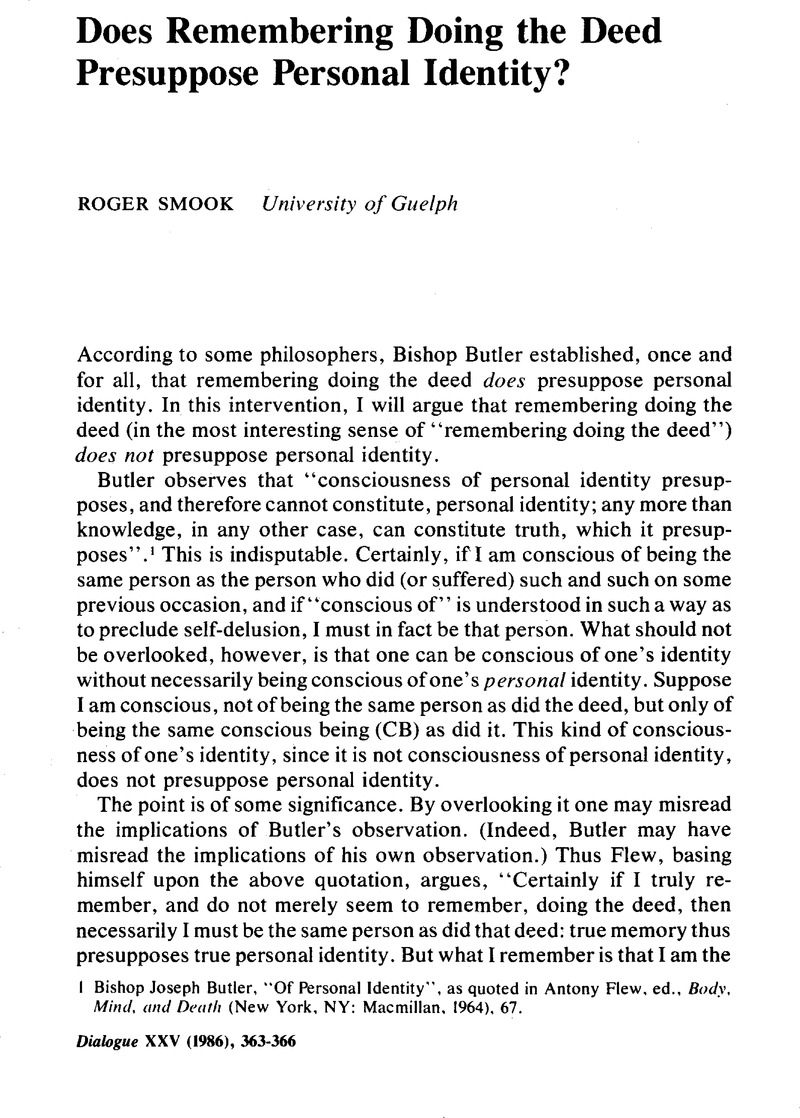No CrossRef data available.
Published online by Cambridge University Press: 13 April 2010

1 Butler, Bishop Joseph, “Of Personal Identity”, as quoted in Flew, Antony, ed., Body, Mind, and Death (New York, NY: Macmillan, 1964), 67Google Scholar.
2 Flew, Antony, “Is There a Case for Disembodied Survival?”, Journal of the American Society for Psychical Research (1972), 140Google Scholar.
3 Penelhum, Terence, Survival and Disembodied Existence (London: Routledge & Regan Paul, 1970), 70Google Scholar.
4 Penelhum, Terence, “Personal Identity”, in Edwards, Paul, ed., The Encyclopedia of Philosophy, vol. 6 (New York: Macmillan, 1967), 101.Google Scholar What Penelhum means, I think, is this: the fact that memory entails personal identity prevents us from defining the latter in terms of the former.
5 It is worth pointing out, en passant, that all merely ostensible rememberings (whether of being the same person or same CB) fail to presuppose personal identity.
6 There is a good deal to be said in favour of a broader notion of CB according to which a CB is a being having the capacity for consciousness. To employ this notion would, however, have meant recasting subsequent developments in terms of dispositional rather than occurrent attributes. For instance, I would have had to talk about potential rather than actual memory. The main point of the paper is unaffected one way or the other. So I preferred to go the simpler route.
7 Quine, W. V. O., From a Logical Point of View (Cambridge, MA: Harvard University Press, 1964), 85Google Scholar.
8 For some analysis of the notions CB stage and CB identity, see my paper,“Would Survival Have to Be Survival of an Astral Body? A Reply to Professor Flew”, Canadian Journal of Philosophy (1975), 488–494Google Scholar.